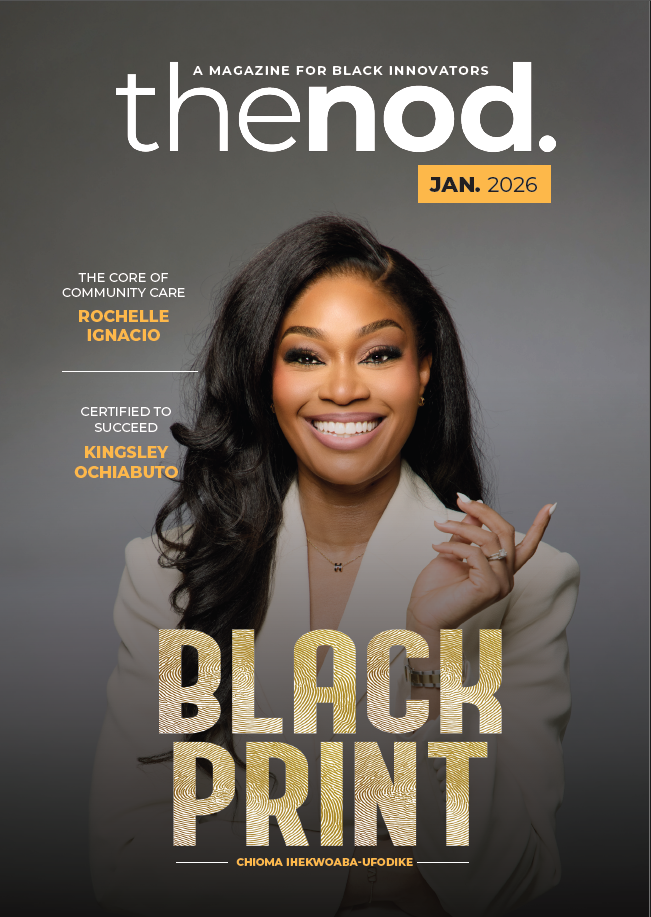Success in business negotiations requires more than strategy. It demands confidence, humility, intuition, and relationship-building. Throughout my career, spanning media, academia, and the arts, I’ve learned that these principles shape how we engage with stakeholders and secure meaningful opportunities.
Confidence has been my foundation. The belief that I can figure things out, even without all the answers, has empowered me to pitch to industry leaders I once thought were out of my league. It has also helped me serve others with conviction, knowing that I bring value to the table.
A crucial lesson I’ve learned is that we get paid what we believe we’re worth. Charging a premium price means delivering premium value. When I stand firm in my expertise, clients recognize my worth and invest accordingly.
Humility: The Key to Meaningful Connections
Staying grounded has been one of my greatest assets in business and humility keeps me grounded. I view business as a service first, whether or not I close a deal, the act of connecting is valuable. This perspective helps me focus on building genuine relationships rather than treating interactions as mere transactions.
Humility also means knowing when to step back and listen. People reveal their priorities through what they say and what they don’t. By paying attention, I tailor my responses to their real concerns, positioning myself strategically in the conversation.
Intuition: The Art of Reading the Room
Business negotiations involve more than logic. They require emotional intelligence and nuance. The way we acknowledge people, offer sincere handshakes, and recognize behind-the-scenes contributors makes a difference in building trust.
One of the most valuable lessons I’ve learned is the power of detaching from outcomes. I present my pitch based on the value I offer, not on who’s sitting across from me. If they’re not the right fit, that’s perfectly fine. This mindset allows me to negotiate with clarity and confidence rather than from a place of urgency.
Empathy and Value-Based Negotiation
Empathy is one of the most underrated skills in negotiation. Understanding a client’s needs and presenting a tailored solution strengthens the case for collaboration. People buy solutions, not just products or services.
That said, standing firm on pricing is essential. Clients who see real value will find a way to pay for it. Instead of lowering my rates, I focus on increasing the value I provide. This ensures fair compensation while delivering significant benefits to my clients.
Communicating with High-Stakes Stakeholders
When presenting to investors, executives, or lawyers, clear and confident communication is critical. As a Black female immigrant and a CEO, I don’t have the luxury of being reserved. I speak with authority, ensuring that my voice is heard while maintaining grace and professionalism.
Dressing the part is another strategic move. Before I say a word, my appearance communicates my level of professionalism and credibility. The textures, colours, and cuts of my clothing reinforce messages of excellence and authenticity.
Adapting Negotiation Strategies for Different Cultural Contexts
As an immigrant in Canada, I’ve learned that business relationships here are built on trust rather than aggressive sales tactics. My mentor once told me, “In Canada, customers will come when they’re ready.” This advice reshaped my approach. I now focus on relationship-building and demonstrating value over time rather than pushing for immediate sales.
Cultural adaptation requires patience. Instead of being frustrated by differences, I embrace them, knowing that once people understand my work, they will recognize its value. Excellence transcends cultural and racial biases.
Building Trust in Business
Trust is the foundation of successful negotiations. To build it, I prioritize honesty, reliability, and consistency. Ensuring my words align with my actions helps foster long-term professional relationships.
One approach I use is establishing credibility early in conversations. Instead of immediately making a pitch, I demonstrate expertise through insightful discussions, relevant case studies, or strategic questioning. This builds confidence in my capabilities before financial discussions even begin.
Leveraging AI in Business Negotiations
AI can be a powerful tool for structuring presentations, refining messaging, and analyzing client data. However, it lacks human elements like authenticity and intuition. I use AI to streamline my work, but my personal touch remains irreplaceable. Relationships are built on trust, and no algorithm can replace the warmth of a genuine conversation or the ability to read between the lines in a negotiation.
Always ensure AI aligns with genuine capabilities. It should enhance, not misrepresent, what we can deliver. Integrity remains key in negotiations, regardless of technological advancements. A well-crafted AI-generated pitch might open doors, but it’s the human connection that seals the deal.
Developing Strong Negotiation and Presentation Skills
For professionals looking to improve their negotiation and presentation skills, I offer three key insights:
- Genuinely Care About People – Business is more than numbers; it’s about relationships. Early in my career, I was more introverted, but embracing connection transformed my approach.
- Lead with Value, Not Just Price – Clients invest when they see the impact of what you offer. Focus on articulating that impact.
- Know When to Listen – Many of us talk too much about ourselves. By listening more, we can respond in ways that truly resonate.
Looking Ahead
Negotiation is both an art and a science. By embracing confidence, humility, intuition, and empathy, professionals can navigate high-stakes discussions with authenticity and success. My career has shown me that those who master these principles will not only secure better deals but also build meaningful, long-lasting business relationships.











